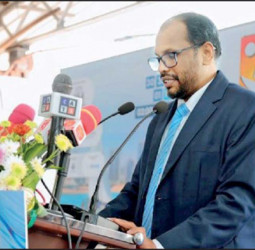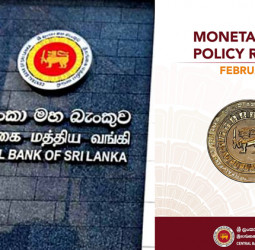The government’s latest amendments to the Tax Appeal Commission (TAC) law have come under fire from the business community, with concerns mounting over its efficiency and fairness in addressing the taxpayer grievances.
A representative from a leading blue-chip company this week questioned the sustainability of the proposed changes, pointing to a lack of transparency, clarity and uniformity in tax assessments carried out by the Inland Revenue Department (IRD).
As part of Budget 2025, the government this week announced a series of proposed changes to the TAC law, including the introduction of mandatory deposits before appealing and increased fees for tax filing appeals.
Among the key amendments is the increment of the fee for referring a case to the Court of Appeal to Rs.10,000 and the appeal filing fee with the TAC to Rs.15,000.
Additionally, the taxpayers disputing an assessment will be required to deposit 25 percent of the disputed tax amount, along with a penalty and interest, under a special account opened by the Commissioner General of Inland Revenue.
“None of the proposals clarify what happens if the TAC rules in favour of the taxpayer,” said John Keells Holdings Head of Corporate Finance and Group Tax Nisreen Rehmanjee.
Speaking at a post-budget forum organised by CA Sri Lanka this week, she noted that under the new amendments, the taxpayers are not only left to pay a portion but also an interest and penalties on the very tax they dispute, before being allowed to voice their grievances.
Given that most tax revenue in Sri Lanka comes from self-assessments, with many taxpayers voluntarily complying, the amendments raise serious concerns about the sustainable growth of the national tax revenue.
Rehmanjee also stressed upon the unfairness of the tax system, pointing out that Sri Lanka has one of the highest per capita tax collections, meaning the taxpayers here contribute significantly more than their fair share to the government tax revenue.
“So, it’s most probably this voluntary taxpaying population, who are already being taxed over and over again, is being subjected to frivolous assessments,” Rehmanjee said.
She explained that the issue is further worsened by systemic inefficiencies such as the IRD’s inability to release the key data needed for tax administration accountability.
Rehmanjee suggested that critical data points, such as how many assessments have been ruled in favour of the taxpayers, could be published, to improve administrative transparency, encourage voluntary compliance and reduce tax evasion.
“The data should tell the story and this data is very important for change. This is what digitisation should capture. But how you are going to use this data is also important,” Rehmanjee said.
Verité Research Executive Director Dr. Nishan de Mel reflected similar sentiments. He warned that despite the International Monetary Fund setting the key performance indicators for several state institutions, there has been a decline in publicly available tax data.
He noted over the years, there has been a strong trend of tax-related and tech-related data reduction, with administrations retreating from releasing the essential information that the public previously had access to.
“This is a trend we should strongly reverse because after all, it’s part of the integrity promise made by the government,” de Mel said.
Source: Daily Mirror



 Mifra
Mifra



